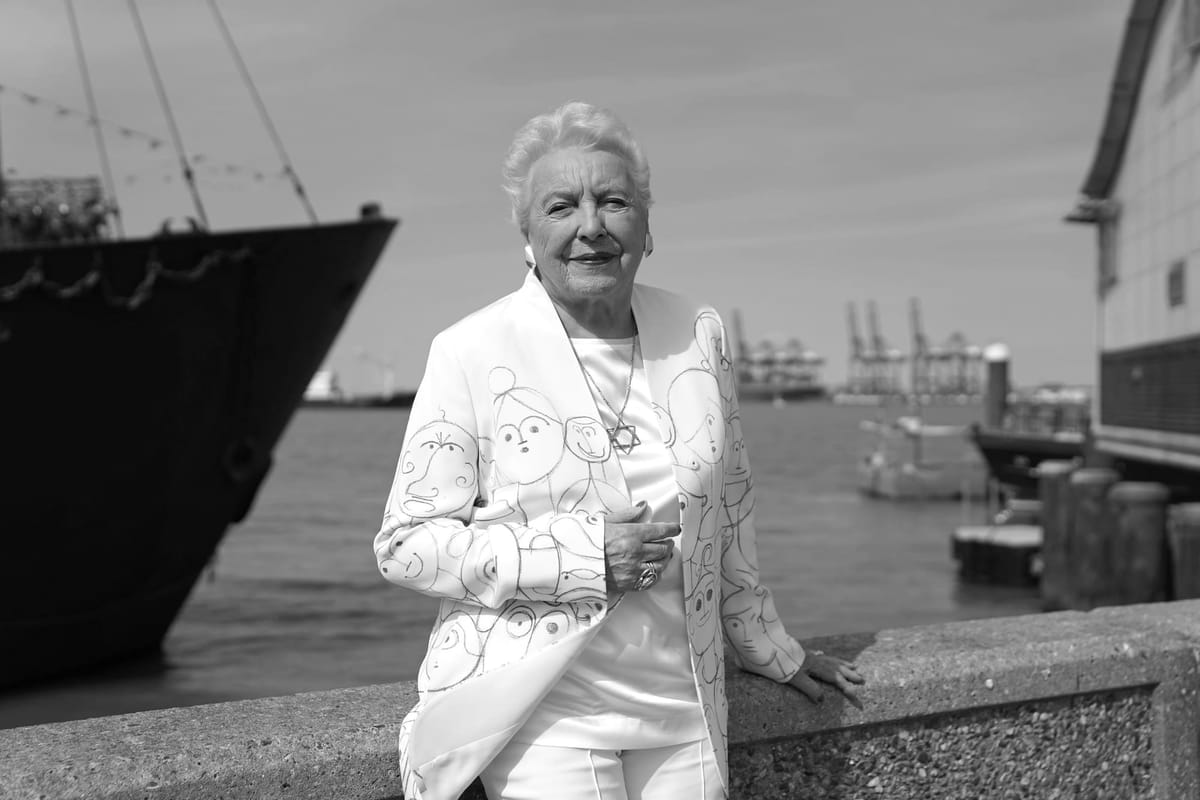The Tech Mogul “Steve” Who Looked Out for Women
Her software company would change everything; perhaps most notably how—and where—women could work.

Years before Steve Jobs changed the tech world with Apple computers, another Steve was revolutionizing the tech world. Or perhaps we should call her “Steve.”
In 1962, “Steve” launched a software company called Freelance Programmers in the U.K. The company sold software, but perhaps more significantly, the majority of its employees were women.
At that time, across pretty much all of business and tech, women were seen as anomalies—oddities, even. Back then, women in the U.K. couldn’t even open their own bank accounts without a male co-signer. And it would be a full 35 years before a woman would be appointed CEO of a major company in the U.K. And that’s why “Steve” went by “Steve,” and not by Stephanie, which was, in fact, her real name.
When she launched Freelance Programmers, Stephanie Shirley started using the Steve pseudonym—a family nickname—so that gender bias wouldn’t dissuade prospective clients from buying her software.

‘Well, this child is gifted in mathematics’
Stephanie Shirley was born Vera Buchthal on Sept. 16, 1933, in Germany. When Adolf Hitler rose to power, Stephanie’s Jewish father lost his job and was forced to flee the country, and 5-year old Vera was placed on a Kindertransport train to the U.K. to stay with foster parents. Her family eventually joined her and at the age of 18, Vera became a British citizen and started to go by her middle name, Stephanie.
From an early age, one constant in Stephanie’s life was her love of numbers. Mathematics was not taught at the all-girls school she attended, so she was given permission to study it at a nearby boys’ school.
"I was the first girl to attend boys school to learn mathematics, and it was a rather unpleasant experience, really, with all the boys cat-calling and whistling as I turned up for my lessons," she told the BBC in 2024. "But I did get the tuition I wanted, and I bless the people that had the sufficient foresight to say: 'Well, this child is gifted in mathematics... and we need to provide her with tuition.’" As Stephanie told it, it was this experience that ultimately "made her career."
After high school, she worked at a post office research center in London, and for six years she attended night classes at Sir John Cass College, a technical school, eventually earning an honors degree in mathematics in 1959.
By that point she was certain she wanted to stake out a career in information technology, but social norms and barriers at the time made that almost impossible for women. Undeterred, she resolved to start her own business instead.
That, too, was an uphill battle. Many of her business development letters were simply ignored on account of them being from a woman. It was then that her husband Derek, a physicist whom she married in 1959, came up with a bold suggestion: Why not just sign off as “Steve”? It worked immediately—with “Steve” able to get a foot in the door and prove “his” business acumen, well before anyone realized the name was a fake.
Skilled, knowledgeable, committed—with access to a telephone
When Freelance Programmers started in 1962, Stephanie’s initial financing was £6—about $175 today. It was a pittance, but her business model—of hiring freelancers who could structure the work around their other responsibilities, including housework and child-rearing—was unique and it fueled the company’s enormous success.
Some 297 of the first 300 freelancers who worked for Freelance Programmers were women and they were excellent at what they did: coding and programming for some of the world’s most powerful and innovative organizations.
Stephanie hired people who were skilled, knowledgeable, committed, and had access to a telephone. But beyond that she trusted them unequivocally to do their jobs independently and in the manner that worked for them—perhaps working at the kitchen table during school hours, or while the baby napped, or after the rest of the family had gone to bed. It was a concept that—in light of today’s draconian back-to-work orders—sometimes feels as radical now as it most certainly was then.

‘Who would have guessed?’
Clients were consistently impressed by the service that Stephanie and her staff were able to provide. Her workers wrote code for the black-box flight recorder on the Concorde, and code that would later be relied on by NATO. “Who would have guessed,” Stephanie mused in a 2020 speech to the British Computer Society, that programming for the Concorde’s flight recorder “was done by a team of 30 women working in their homes?” In that same speech she poignantly asserted: “Progress comes from an ongoing series of small steps rather than some giant leap.”
Stephanie was remarkably savvy. She was financially prudent and weathered many economic headwinds, but also, and perhaps above anything else, she was a leader. By the 1990s, she’d given her employees equity in the company, meaning that when it was taken public around 70 of them became millionaires overnight. At one point, Stephanie was reportedly worth around $200 million, making her one of the richest women in Britain.
Later, Freelance Programmers, which had been renamed F International, then FI Group, and eventually Xansa, was bought several times and, at one point, reached a valuation of about $3 billion. In 2007, it was bought by a digital consulting firm called Sopra Steria.
Dame Stephanie Shirley died at the age of 91 last month. By the time of her death, she had been given some of the most prestigious honors in Britain including being appointed Officer of the Order of the British Empire, or OBE. She also donated much of her vast wealth to charities and nonprofits. Still, around the world, her name and legacy remain more or less unknown, eclipsed by so many of the men we associate with tech today—the Marks, the Bills, the Elons.
She was a tech pioneer, undoubtedly, but it may be her other legacy that is even more lasting: That she made work actually work for women—something countless business leaders are still grappling with today.







